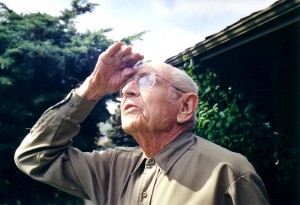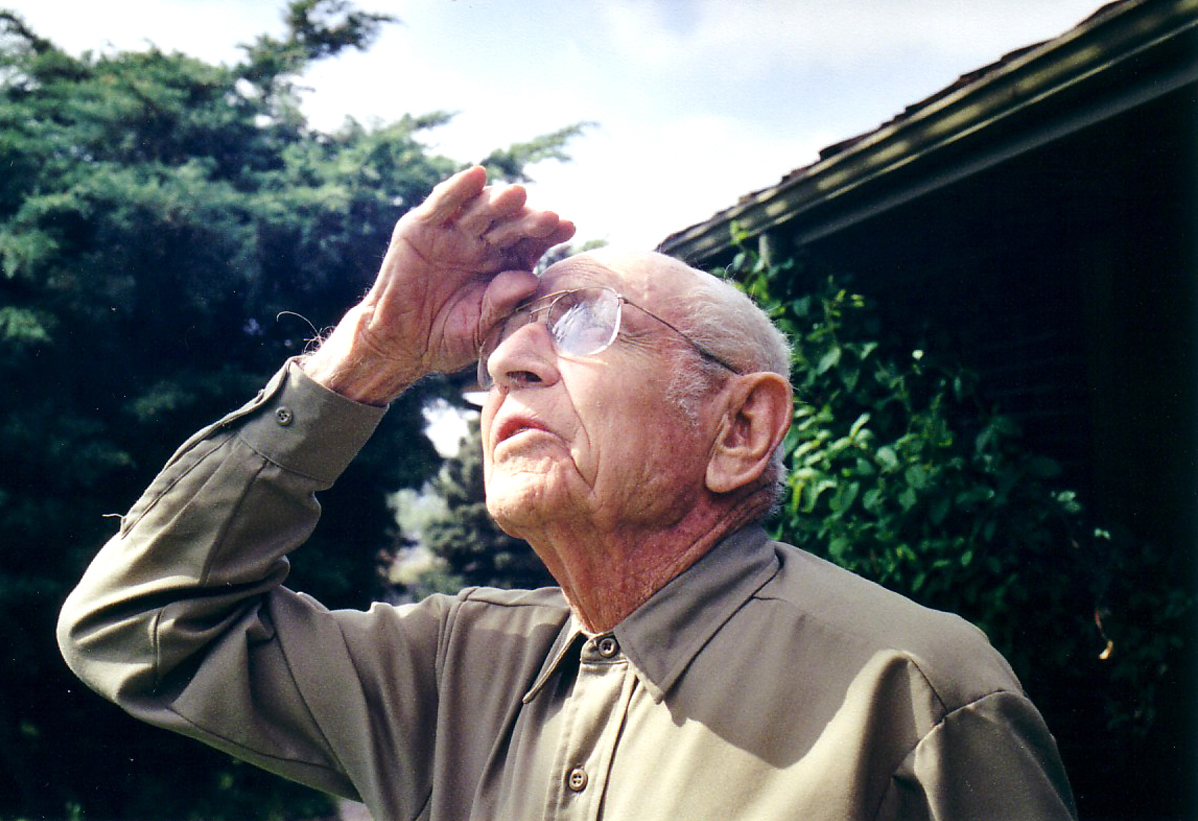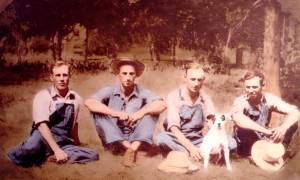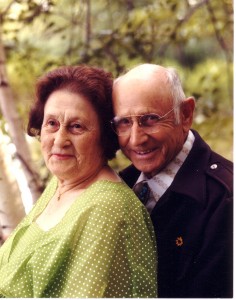
At the time of his death, the FAA acknowledged Cole Kugel, pictured at his Colorado home in 2002, as the country’s oldest pilot.
By Clayton Moore
The Colorado skies are a little diminished this summer with the passing of Cole Kugel, who died June 11 of natural causes at his home in Longmont, Colo., at the age of 105. In 2001, the Guinness Book of World Records acknowledged the lifelong flying enthusiast as the world’s oldest qualified pilot. At the time of his death, the Federal Aviation Administration confirmed that Kugel was the oldest licensed pilot in the United States.
Kugel, a quiet gentleman with the gentle decency of a farmer and the steely resolve of a judicious pilot, could often be found flying in his beloved Cessna, gazing down on the rural community he loved. His license never expired, although his health certificate lapsed in 2001, requiring the elderly pilot to have friends keep him company during his flights.
It was Kugel’s habit to fly each year on his birthday, March 14. He picked up the ritual from Harry J. Liggett, another local celebrity.
“Harry didn’t start flying until he was 60 years old, and he was 97 when he died,” Kugel said in a 2002 interview with Airport Journals. “For a long stretch there, he’d go out on his birthday and fly. I thought, ‘Gee, that’s quite a stunt. I think I’ll do that, too.'”
Kugel flew again earlier this year, piloting in the company of local veterinarian Lynn Ferguson, a longtime friend and the grandson of one of Kugel’s early flying buddies, Lee Hagemeister. Kugel and Ferguson took their annual flights in a 1976 Cessna 182 that Ferguson bought from Kugel in 2001.
This year’s flight capped a lifetime’s worth of aviation experience that included landings on grass strips, seat-of-your-pants navigation following America’s earliest roads and a front row seat to the birth of aviation.
A darned good place to grow up
Kugel was born on March 14, 1902, in what was then called the Oklahoma Territory. He was raised there on a farm among four siblings: brothers Harry, Paul and Glen and a sister, Mirth.
“It’s a darned good place to grow up,” he recalled. The family raised horses and a few crops until their 1915 tractor gave out.
Like his brothers, Kugel attended college at Oklahoma A & M University in Stillwater, where he studied commerce and marketing while still helping on the family farm, when he had time.
“I thought I knew a little about farming from practical experience,” he said. “I though, ‘Gee, I better learn a little bit about the business, too.'”
He stumbled into teaching as a favor to a local school superintendent. Once school administrators saw Kugel’s comfortable way with students, they were glad to have him teach there, which he did for nearly two years.
In the fall of 1926, Kugel met another schoolteacher at the Methodist church in Lamont, Okla. He was smitten by 23-year-old Mildred Kemper, from Chickasha, Okla.
“She looked pretty good; when she came around, I squeezed her hand,” Kugel remembered. “She said that she always blamed me for that. We got to going together, but we courted a long time. There was a depression, and there wasn’t any money to get married on.”
The two finally tied the knot in 1936.
Kugel started flying just before the depression hit. He had seen airplanes as a child at the county fairs near Blackwater, Okla., in the 1920s. As a young adult, he started taking his own lessons in biplanes, accumulating 12 hours of solo flight.
Flying Farmers
Cole and Paul Kugel followed an uncle to Longmont just before World War II. They set up dry land farms in the fields of Platteville, Colo. A bumper crop in 1941 was a bounty for the whole family. By 1945, Kugel earned his pilot’s license, a year after his brother got his. They soon started helping the city build the first hangar and runway at what is today Longmont’s Vance Brand Airport.
Back in Stillwater, Okla., a group of farmers and crop dusters organized themselves into what is now known as the International Flying Farmers.
“I don’t know whether the idea first came up down there, but that’s where they first organized,” Kugel recalled. “It spread like wildfire. We did whatever you could use an airplane for, to go places and look the crops over. I didn’t quite get in on the first group, only because I didn’t have a plane at the time.”
Today, thousands of the organization’s members use their aircraft to monitor irrigation systems, check livestock and crops and especially to deliver and pick up supplies and parts.
In the fall of 1946, Kugel flew to the Piper aircraft factory in Lockhaven, Penn., and bought a new Super Cruiser. He ferried the airplane back across America, with no radio and only a set of standard road maps to guide him.
“It was a lot freer than it is today,” he said. “You’d go where you wanted to go. I had a compass, and I just followed the highways and railroad tracks west.”
Later, Kugel became president of the Colorado Flying Farmers, a group that started locally as the Longmont Flying Ranchers. The Flying Farmers were a big part of life for Kugel and his wife, making them friends to farmers all over the continent.
Together, they saw North America, from Alaska to Costa Rica and everything in-between, from the cockpit of their airplanes. They flew with 30 other Flying Farmers to Alaska in the 1950s, and the Kugels often spent relaxing weekends at East Trout Lake near Saskatchewan, Canada. For more than 20 years, the Kugels and several Flying Farmer friends made annual trips to catch the big northern pike, walleye and trout that populated the lake.
In 1963, the Kugels bought a house in Longmont for $1,000. They also invested in a series of aircraft. After that first Super Cruiser, Kugel’s planes included a Cessna 170 and 180. His sixth and last plane, bought in 1976, shortly before he retired from farming, was a Cessna 182—N29CM. He fondly recalled that the CM in the N number represented “Cole and Mildred.”
Kugel replaced the engines in the planes at a regular pace, keeping them running smooth.
“I did most of the work myself,” he said. “I worked on engines a long time. I’m a pretty good fixer.”
A steady work ethic gave Kugel a reputation as a cautious pilot. In 78 years of flying, he never had an in-flight emergency or as much as a close call.
“A plane’s just something to go places in,” he said. “I never wanted an airplane for stunt purposes. People get killed fooling around with them. If you stay with those stunts, something’s going to go just a little out of order, and then you don’t make it. I always tried to be kind of cautious and not get wrapped up in bad weather. The important part’s not to break one up.”
Planes were so important to her husband that one of Mildred’s last requests before passing away in June 2001 was for him to keep his plane.
“We got along real well, and we had 63 years together,” said Kugel, who looked after her during spells of poor health in the late 1990s. “That’s part of this old life.”
Latter days
However, in late 2001, Kugel did sell his Cessna 182 to Ferguson. One of the conditions of the sale was that Ferguson would take Kugel up on his birthday every year.
“I made a good landing,” Kugel said of his 2002 flight, on the occasion of his 100th birthday. “Didn’t bobble it a bit.”
Kugel lived quietly, but the awards that lined his fireplace mantle speak to his character and perseverance. Alongside a portrait of Mildred, Kugel had hung “Man of the Year,” “Oldest Pilot” and “Ambassadors of Good Will” awards from the local and national Flying Farmers chapters. Next to the plague presented by the Guinness Book of World Records was the FAA’s “Golden Wings Award,” presented just before the aviation pioneer turned 103.
In addition to the International Flying Farmers, Kugel was also a member of St. Vrain Lodge No. 23 A.F. & A.M., El Jebel Shrine and its Air Patrol and the First Methodist Church.
Despite all the accolades, Kugel always focused more on the future than the past. To help the farmers that came after them, Kugel and his wife established a college scholarship for agricultural students, in collaboration with the Longmont Co-op.
“What’s gone by has already gone by,” Kugel said. “It’s what’s ahead of you that you have to look forward to.”
Kugel was buried at Longmont Mountain View Cemetery. A service in his honor was held on June 15 at the First United Methodist Church in Longmont.
“We got along all right,” he said in 2002. “We had a good life.”













